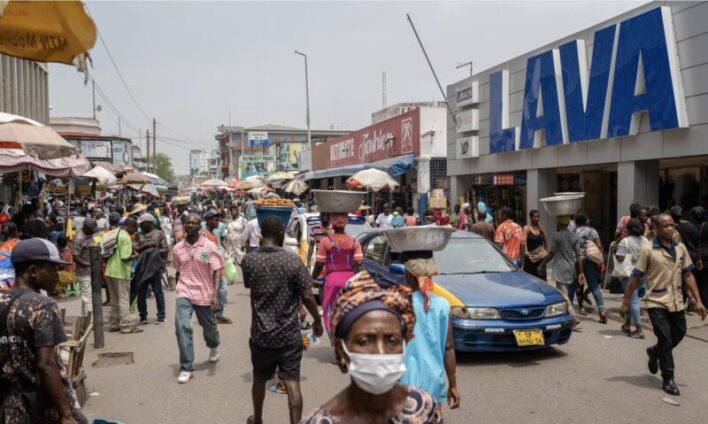
Audio By Carbonatix
Professor Peter Quartey, Director, Institute of Statistical, Social, and Economic Research (ISSER), says Ghana needs a debt ceiling to prevent another round of debt restructuring.
He said the government must by law borrow at a threshold of 60 per cent of Gross Domestic Product (GDP) to reduce debt servicing in future expenditures.
Prof Quartey was launching the State of Ghanaian Economy Report, which was held at the premises of the institute.
The event aligns with ISSER’s commitment to promoting knowledge for evidence-based decision-making and sustainable development.
It provided an objective platform to discuss the current economic situation and its impact on Ghanaians.
The Professor said the government must review the fiscal responsibility law to include a debt ceiling to ensure that deficits and debt are contained within sustainable thresholds.
He said the government must ensure that there was expenditure rationalisation, especially in procurement and compensation, through the digitalisation of payroll systems.
Ghana was plunged into serious indebtedness when it failed to service its external and internal debts in 2022.
The country’s debt situation was worsened by its lack of access to the international market to borrow due to its junk status ranked by international rating agencies.
On 5th December 2022, the government of Ghana launched Ghana’s Domestic Debt Exchange Programme (DDEP) to restructure GHS137 billion of the domestic debts.
Prof. Quartey said Ghana’s tax capacity was low, as evident in its low tax-to-GDP ratio, which stood at 12.3 per cent in 2022 and 13.64 per cent in 2024.
He said this led to a vicious cycle of low tax inflows under the provision of infrastructure.
This, according to the Professor of Economics, forced Ghana to rely heavily on debt through interest payments, which constituted the single largest expenditure item contributing to the recent economic instability.
The Director urged the government to implement a strong revenue-based system by enhancing the capacity of prospective revenue-generation institutions such as the Metropolitan, Municipal, and District Assemblies (MMDAs).
He said the government must ensure expenditure rationalisation, especially in procurement and compensation, through the digitalisation of payroll systems.
The ISSER director also advised the government to ensure that all government expenditures across the MMDAs be captured under the GIFMIS system.
He advised the MMDAs to appropriately design and deploy technology to boost property rate collection, reduce reliance on central government transfers, and promote local development.
The Professor also urged local governments to invest in appropriate Information Technology(IT) systems to increase tax capacity.
Latest Stories
-
Woman found dead in boyfriend’s room at Somanya
15 minutes -
Woman feared dead after being swept away in Nima drain amid heavy rain
26 minutes -
Court grants GH¢10k bail to trader who posed as soldier at 37 Military Hospital
36 minutes -
Tano North MP secures funding to reconstruct decades-old Yamfo Market
45 minutes -
Haruna Iddrisu discharged after road traffic accident
57 minutes -
Kenyans drop flowers for Valentine’s bouquets of cash. Not everyone is impressed
1 hour -
Human trafficking and cyber fraud syndicate busted at Pokuase
1 hour -
Photos: First Lady attends African First Ladies for Development meeting in Ethiopia
2 hours -
2026 U20 WWCQ: Black Princesses beat South Africa to make final round
2 hours -
World Para Athletics: UAE Ambassador applauds Ghana for medal-winning feat
3 hours -
Photos: Ghana’s path to AU Chairmanship begins with Vice Chair election
3 hours -
Chinese business leader Xu Ningquan champions lawful investment and deeper Ghana–China trade ties
3 hours -
President Mahama elected AU First Vice Chair as Burundi takes over leadership
4 hours -
Police work to restore calm and clear road after fatal tanker crash on Suhum–Nsawam Highway
4 hours -
Four burnt, several injured in Nsawam-Accra tanker explosion
5 hours

